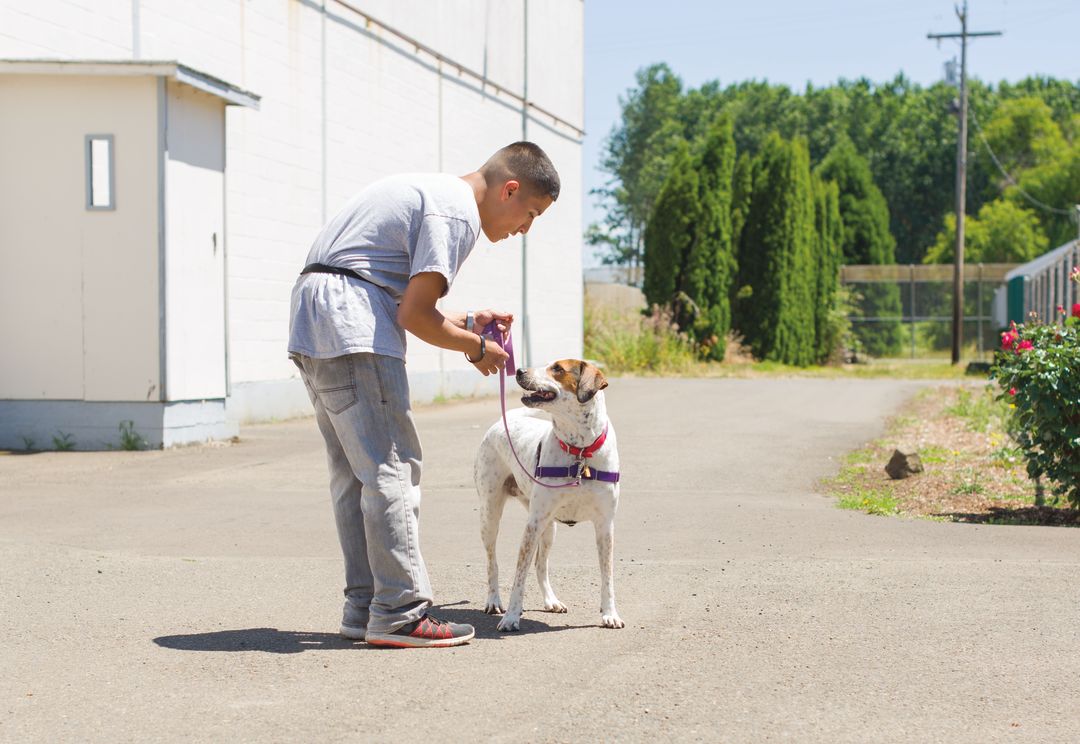At One Oregon Jail, Young Men and Unwanted Dogs Help Each Other

MacLaren resident Victor with his dog Leah
Image: Erica J. Mitchell
Set on a sprawling 172-acre compound with open fields, basketball courts, tree-lined walkways, and cream-colored sleeping “cottages,” the 186-bed MacLaren Youth Correctional Facility looks more like a private school with a security obsession than a correctional facility. But that’s exactly what it is: one of the state’s largest institutions for young males, age 12 to 24, who’ve been convicted of serious crimes, including assault and murder.
For some of MacLaren’s residents, salvation can come in the form of a wet, sloppy canine kiss. And that’s welcome news. In this biennium, the state estimates it will spend $164 million incarcerating youth offenders, an increase of $46 million since 2005–2007. POOCH, a two-decade-old program with an annual budget of $250,000, pairs youth offenders with unwanted dogs from shelters around the Pacific Northwest—in the hope that each can help the other.
“It’s therapy through unconditional love,” says Joan Dalton, who founded the program at MacLaren in 1993.
Since starting with two “unadoptable” dogs and one youth, POOCH—the name stands for Positive Opportunities Obvious Change with Hounds—has grown to save the lives of more than 100 dogs each year while mentoring and training youth offenders in vocational skills—not to mention perseverance and empathy.
“Once they overcome the frustrations of being responsible,” says kennel supervisor Makai Brusa, “the light goes on, and you’re like, ‘Wow, look at the change.’”
After at least a year at the closed-custody facility, a youth can be considered for the program once a treatment manager gives him the green light to apply to be a trainer. That’s when the mentoring process begins. Working with dogs seven days a week in the campus kennel, youth offenders learn compassion and patience through handling sometimes monotonous day-to-day tasks, from walks to cleaning the kennels, designed to encourage centered and intentional behavior.
Marcos M., a soft-spoken 23-year-old program veteran who, because of his age, will be transferred to an adult facility next year, couldn’t agree more. “When I came, I was really antisocial, but this program has definitely helped me come out of my shell,” he says. “It’s really good at teaching you responsibility, patience, caring for other living things, and being able to communicate with people.”
“Never give up hope,” Dalton adds. “No one is ever a throwaway.”
